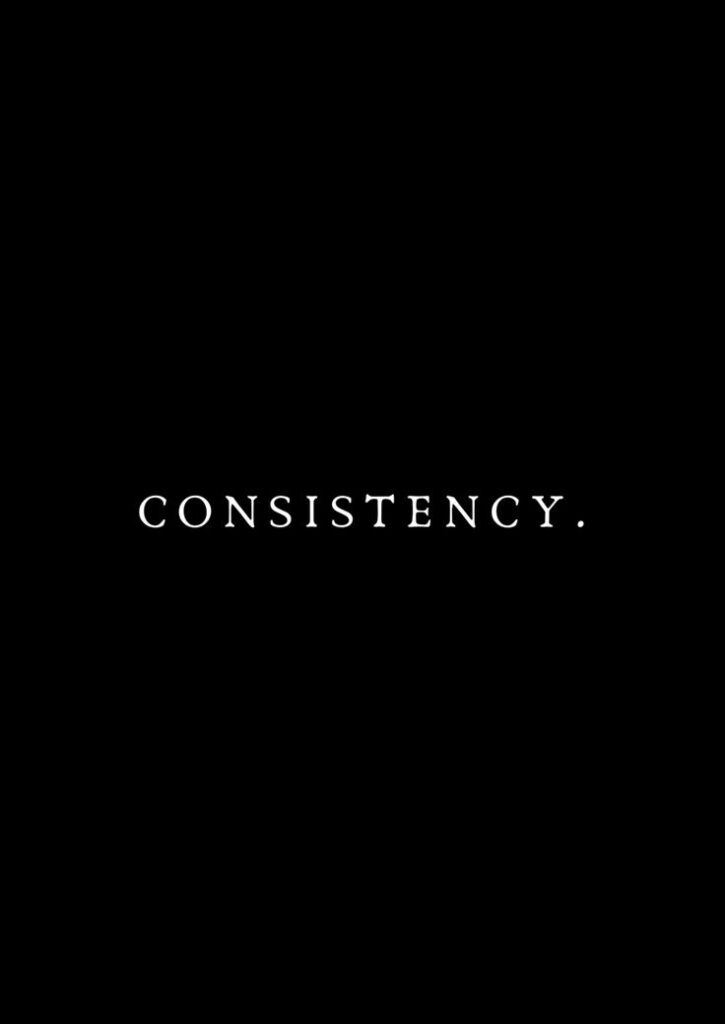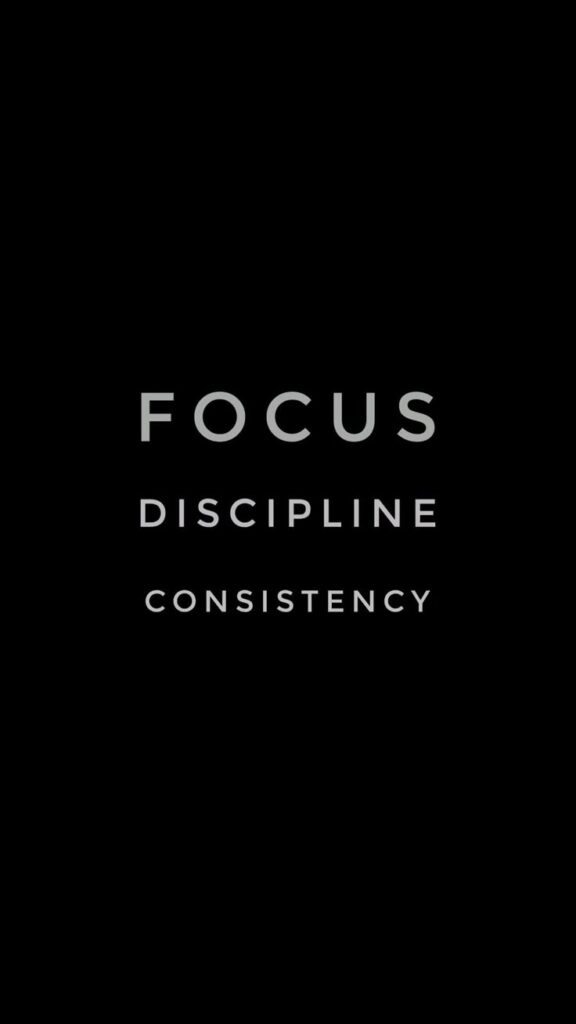
Consistency is the quiet hero behind every success story. Whether it’s building a business, improving mental health, losing weight, or creating better habits, one truth remains: small steps, taken consistently, lead to big changes. But how do you stay consistent in a world full of distractions, low motivation days, and constant challenges?
In this guide, we’ll explore the power of small actions, why consistency matters more than perfection, and how you can build a lifestyle rooted in steady progress — one step at a time.
H2: Why Consistency is More Important Than Intensity
Many people start their goals with intense enthusiasm — crash diets, extreme workouts, daily journaling, etc. But they often burn out quickly. Here’s why consistency beats intensity in the long run:
- Sustainability: Intense efforts are rarely sustainable. Small habits are.
- Momentum: Small steps create daily wins that build momentum.
- Resilience: Consistency trains your mind to push through resistance.
A single workout doesn’t get you fit. A single blog post doesn’t build a brand. A single meditation session doesn’t bring peace. But doing these things regularly? That’s the key.
H2: The Psychology Behind Building Habits
Understanding how your brain works can help you stick to new routines. Habits are formed through a cue → routine → reward cycle. When you repeat a behavior in response to a cue and receive a reward, your brain wires it as a habit.
Tips for habit formation:
- Start small: Make the habit so easy that you can’t say no.
- Stack habits: Attach a new habit to an existing one (e.g., meditate after brushing teeth).
- Reward yourself: Small rewards reinforce behavior (e.g., a checkmark, positive affirmation).
H2: How to Start with Small, Achievable Steps
One major reason people fail to stay consistent is setting goals that are too big. Instead, start with actions so small, you feel silly not doing them.
Examples:
- Want to write a book? Start with writing 50 words a day.
- Want to get fit? Start with 5 push-ups.
- Want to meditate? Begin with 2 minutes.
Over time, your brain gets used to these tasks, and you naturally start doing more without resistance.
H2: Daily Routines that Build Consistency
Building routines is the secret weapon for staying consistent. Routines reduce decision fatigue, make life predictable, and give your brain a pattern to follow.
Morning Routine Ideas:
- Drink water immediately after waking up.
- Practice gratitude or journaling for 5 minutes.
- Stretch or do light exercise.
- Read something inspiring.
Evening Routine Ideas:
- Reflect on your day and write 3 wins.
- Plan your next day’s priorities.
- Practice a wind-down ritual (e.g., reading or deep breathing).
- Sleep at the same time each night.
H2: Tracking Progress the Right Way
What gets measured, gets managed. But the key is to track progress without judgment. Use simple tools:
- Habit tracker apps (like Habitica, Loop, or Notion)
- Bullet journals
- Daily checklists
Tracking helps you visually see progress, making you less likely to give up.
H2: Dealing with Low-Motivation Days
You will not feel motivated every day — and that’s okay. Consistency means showing up even when you don’t feel like it.
Strategies to stay on track:
- Lower the bar: Do the smallest version of your habit. Instead of a full workout, do 1 minute of jumping jacks.
- Use “if-then” plans: If I feel tired, then I will just journal for 2 minutes.
- Remind yourself of your ‘why’: Keep your reasons visible.
H2: Break Big Goals into Tiny Actions
A big goal like “write a book” or “start a business” can feel overwhelming. Break it down into bite-sized steps:
Example: Goal – Launch a Blog
- Pick a niche
- Buy a domain
- Write the first post
- Publish once a week
- Promote on social media
This method removes the pressure and keeps you moving forward.
H2: Consistency in Mental Health and Wellness

Consistency isn’t just for productivity — it’s also crucial for mental health. Daily practices like journaling, mindfulness, exercise, and self-care have a compounding effect.
Small consistent actions for mental health:
- Journaling: Write down how you feel for 5 minutes a day.
- Meditation: 2–5 minutes of focused breathing.
- Nature walks: 10-minute walk outside for clarity.
- Gratitude practice: Note 3 things you’re thankful for.
H2: The Compound Effect – Why Small Wins Matter
The compound effect means that small actions, when repeated over time, produce massive results. You might not notice change after one week, but over six months? Everything changes.
Just like compound interest builds wealth, repeated habits build success.
H2: Real-Life Case Study – Small Steps That Changed a Life
Meet Ananya, a 27-year-old writer who wanted to build a career in content creation but struggled with focus and low confidence.
Instead of setting big goals, she started by:
- Writing for 15 minutes every day
- Posting one article per week on LinkedIn
- Reading for 10 minutes daily
After six months:
- She had a portfolio of 25+ posts
- Gained over 5,000 followers
- Landed freelance clients and a remote job
Her secret? Small steps, done every single day.
H2: How to Build Systems Instead of Goals

Goals give direction, but systems are what create long-term consistency. A goal is the destination; a system is the map.
Examples:
- Goal: Lose 10 kg → System: Meal prep + 30-min daily walks
- Goal: Be a good parent → System: Daily quality time + active listening
- Goal: Be less stressed → System: Journaling, breathing exercises, screen limits
When you focus on systems, success becomes automatic.
H2: Don’t Break the Chain – The Jerry Seinfeld Method
Famous comedian Jerry Seinfeld once shared his productivity trick: Write one joke every day, and mark an X on a calendar. Eventually, the chain of X’s becomes so long, you don’t want to break it.
Try this:
- Print a calendar
- Pick one habit
- Mark an X every day you do it
- Aim to never break the chain
It’s simple and powerfully effective.
H2: Common Challenges to Staying Consistent (and How to Overcome Them)
1. Perfectionism
- Fix: Focus on progress, not perfection. Done is better than perfect.
2. Lack of time
- Fix: Use micro-habits that take less than 5 minutes.
3. Forgetting
- Fix: Set reminders or use habit-stacking.
4. Getting discouraged
- Fix: Track tiny wins and celebrate often.
H2: Build a Supportive Environment
Your environment shapes your habits. To stay consistent, create a space that makes your habits easier.
Environment hacks:
- Keep workout clothes visible.
- Keep healthy snacks at eye level.
- Use positive affirmations or sticky notes.
- Surround yourself with people who encourage growth.
H2: Tools That Can Help You Stay Consistent
Here are a few tools to support your consistency journey:
- Apps: Habitify, Streaks, Notion, Todoist
- Books: Atomic Habits by James Clear, The Slight Edge by Jeff Olson
- YouTube Channels: Matt D’Avella, Ali Abdaal
- Communities: Reddit’s r/productivity, Focusmate, online accountability groups
H2: Staying Consistent Without Burning Out
Consistency doesn’t mean hustling 24/7. Rest is also part of the process.
How to avoid burnout:
- Schedule rest days
- Say “no” to tasks that don’t align with your goals
- Focus on one or two habits at a time
- Check in with your energy levels weekly
H2: Final Thoughts – Start Today, Not Someday
You don’t need motivation to get started. You need a tiny step and the willingness to show up, even imperfectly. Whether you want to write, run, create, heal, or grow — you already have everything you need.
Remember:
- Small steps lead to big change
- Progress > Perfection
- Systems > Willpower
- Showing up is the real success
Conclusion
Staying consistent isn’t about doing everything right — it’s about doing something, every day, no matter how small. Your big dreams don’t need big leaps. They just need you to take one step at a time.
So, take that first step today. And then tomorrow. And then again.
You’ve got this.
